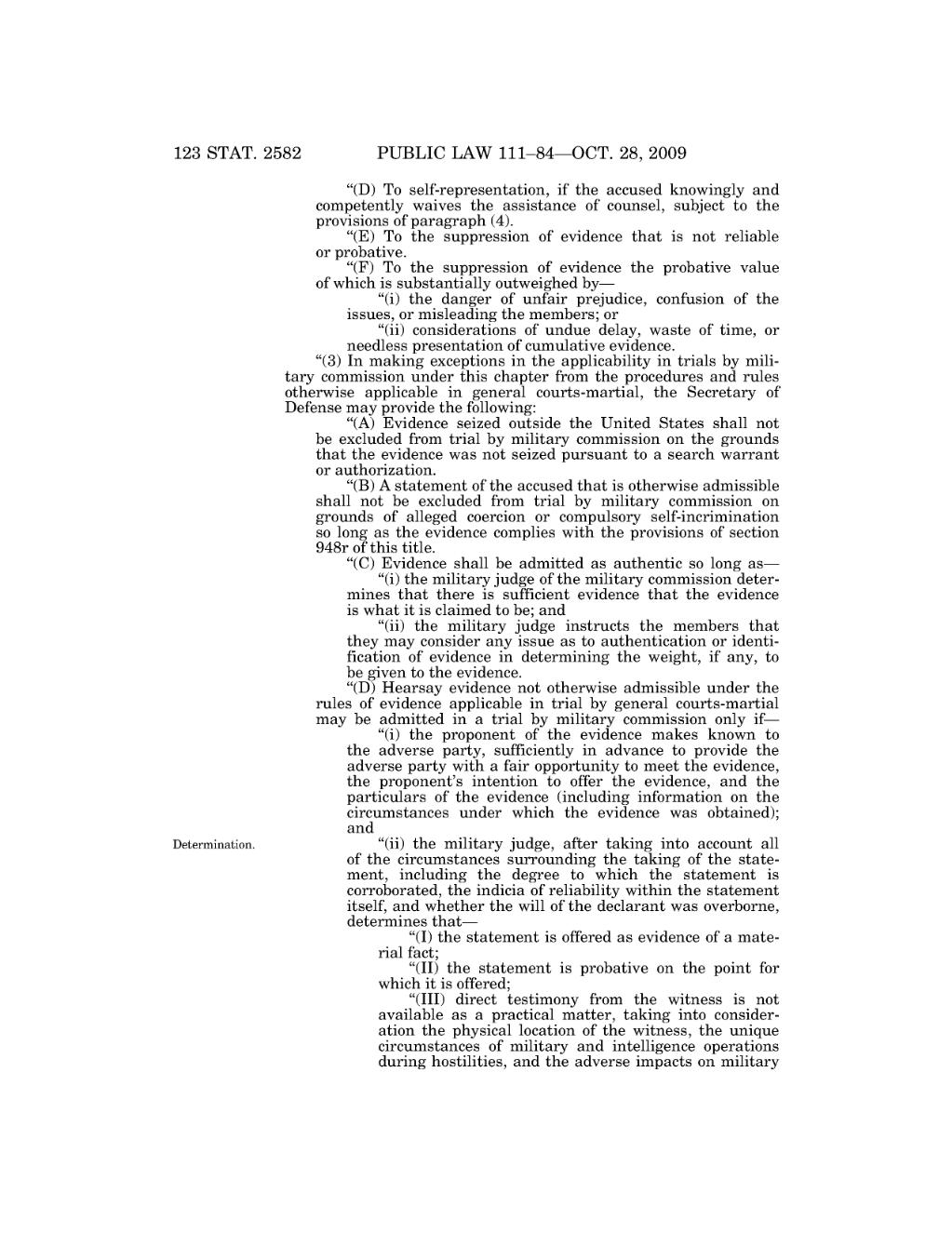123STA T . 2 58 2 PUBLIC LA W 111 – 8 4—O CT. 28 , 2 0 0 9‘ ‘ (D)Toself-r e p rese nta t i on , ift h ea c c u se dk no w in g l y and co m petently wai v es the assistance of counsel, su bj ect to the provisions of paragraph ( 4 ) . ‘‘( E ) To the suppression of evidence that is not reliable or probative. ‘‘( F ) To the suppression of evidence the probative value of which is substantially outweighed by — ‘‘(i) the danger of unfair prejudice, confusion of the issues, or misleading the members
or ‘‘(ii) considerations of undue delay, waste of time, or needless presentation of cumulative evidence. ‘‘( 3 ) I n making e x ceptions in the applicability in trials by mili- tary commission under this chapter from the procedures and rules otherwise applicable in general courts-martial, the S ecretary of Defense may provide the following
‘‘( A ) Evidence sei z ed outside the U nited States shall not be excluded from trial by military commission on the grounds that the evidence was not seized pursuant to a search warrant or authorization. ‘‘( B ) A statement of the accused that is otherwise admissible shall not be excluded from trial by military commission on grounds of alleged coercion or compulsory self-incrimination so long as the evidence complies with the provisions of section 9 4 8 r of this title. ‘‘( C ) Evidence shall be admitted as authentic so long as— ‘‘(i) the military judge of the military commission deter- mines that there is sufficient evidence that the evidence is what it is claimed to be; and ‘‘(ii) the military judge instructs the members that they may consider any issue as to authentication or identi- fication of evidence in determining the weight, if any, to be given to the evidence. ‘‘(D) H earsay evidence not otherwise admissible under the rules of evidence applicable in trial by general courts-martial may be admitted in a trial by military commission only if— ‘‘(i) the proponent of the evidence makes known to the adverse party, sufficiently in advance to provide the adverse party with a fair opportunity to meet the evidence, the proponent ’ s intention to offer the evidence, and the particulars of the evidence (including information on the circumstances under which the evidence was obtained); and ‘‘(ii) the military judge, after taking into account all of the circumstances surrounding the taking of the state- ment, including the degree to which the statement is corroborated, the indicia of reliability within the statement itself, and whether the will of the declarant was overborne, determines that— ‘‘(I) the statement is offered as evidence of a mate- rial fact; ‘‘(II) the statement is probative on the point for which it is offered; ‘‘(III) direct testimony from the witness is not available as a practical matter, taking into consider- ation the physical location of the witness, the uni q ue circumstances of military and intelligence operations during hostilities, and the adverse impacts on military Det e rmina ti o n .
